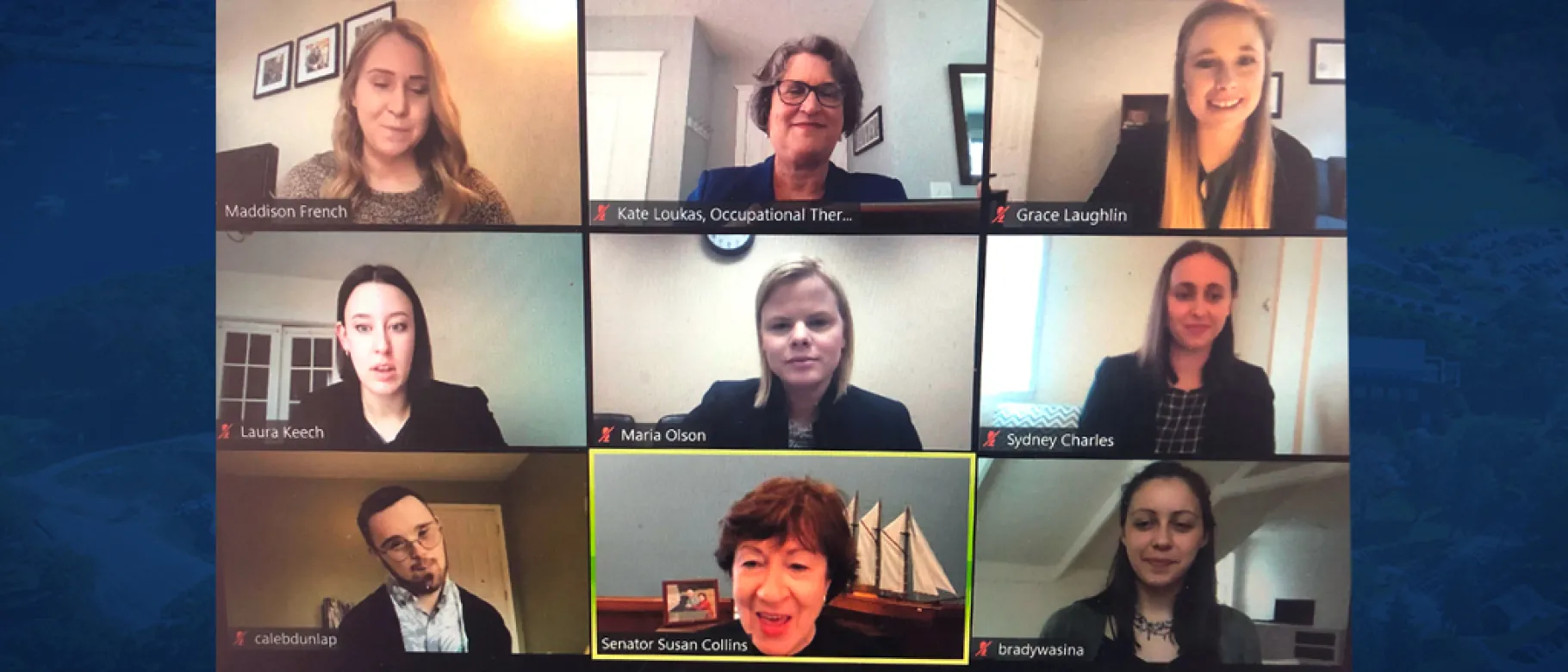Maine LEND trainees virtually advocate for people with disabilities in Washington

Trainees from the Maine Leadership Education in Neurodevelopmental Disabilities (LEND) program recently attended the virtual Disability Policy Seminar in Washington, D.C., as part of the conclusion of their curriculum.
Policy priorities outlined at the seminar by the Association of University Centers on Disability (AUCD) included home and community service support, integrated competitive employment, COVID-19 relief and vaccines for people with disabilities and their families, and budget allocations for programs including the 52 LEND programs throughout the nation.
This year, four trainees served as leaders for the Capitol Hill Visits: Emily Wasina (M.S.O.T, ’21) led Team Chellie Pingree; Sydney Charles (D.P.T., ’21) led Team Angus King; Maddison French (Nursing, ’20) led Team Susan Collins; and University of Southern Maine student Amy Crawford (M.S.W, ’21) led Team Jared Golden. Each team was named after a Maine state legislator.
The leaders were charged with organizing trainees to speak on specific issues, communicating with the legislative staff, assuring staff offices receive materials, facilitating the online meeting, and following up with the legislators.
Faculty support was offered by Kathryn Loukas, O.T.D., M.S., OTR/L, FAOTA, clinical professor of occupational therapy and LEND training director; Valerie Jones, L.M.S.W., Family Interprofessional Team (FIT) coordinator and assistant clinical professor of social work; and Eileen Ricci, PT, D.P.T., M.S., PCS, associate clinical professor of physical therapy and Maine LEND program director.
The LEND program is a federally funded project aimed at expanding resources to individuals in Maine with Autism Spectrum Disorder (ASD) and other neurodevelopmental disabilities. The program’s goals include training health care providers, parents, educators, and others to improve the health of children and others with neurodevelopmental disabilities. The program includes interprofessional trainees in occupational therapy, physical therapy, speech and language pathology, audiology, social work, nursing, special education, school psychology, and public health, as well as community health workers, family discipline practitioners, and self-advocates.